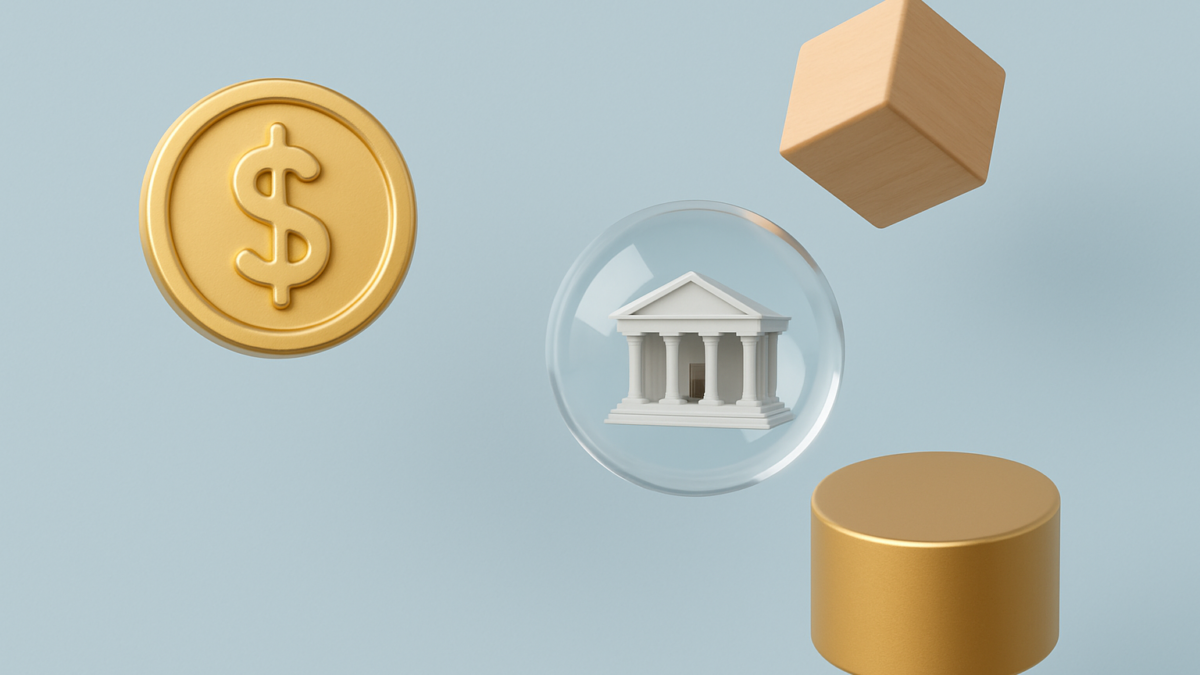Tokenizing Traditional Assets: The Future of Finance in 2025
The financial industry is experiencing a radical transformation in 2025, with asset tokenization emerging as a major disruptor. By converting traditional financial assets into blockchain-based digital tokens, investors can now access fractional ownership, enhanced liquidity, and new investment avenues. From stocks and bonds to real estate and commodities, tokenization is redefining how we invest, trade, and manage assets.
What Is Asset Tokenization?
Asset tokenization refers to creating digital tokens on a blockchain that represent ownership of a real-world asset. Each token corresponds to a fraction of the underlying asset, enabling fractional ownership, simplified trading, and global accessibility.
Key Components of Tokenization:
- Smart Contracts: Automated agreements that execute transactions without intermediaries.
- Digital Tokens: Blockchain-based representations of ownership or financial rights.
- Custodianship: Entities safeguarding the underlying physical assets.
- Regulatory Compliance: Legal frameworks to ensure secure and legitimate transactions.
This combination provides transparency, security, and efficiency for modern investors.
Current Trends in Asset Tokenization
1. Tokenized Stocks and Equities
Leading platforms like Robinhood and Coinbase are offering tokenized stocks that allow fractional ownership and 24/7 trading. Investors benefit from lower transaction fees and the ability to diversify portfolios with smaller capital. However, regulatory hurdles remain, as tokenized stocks may not offer full shareholder rights.
2. Real Estate Tokenization
Fractional property ownership is now possible through real estate tokenization. Investors can buy and sell portions of properties on blockchain platforms, making real estate more liquid and accessible than ever before. This trend is particularly beneficial for high-value commercial and residential properties, where traditional investment would require significant capital.
3. Tokenized Bonds and Commodities
Tokenized bonds and commodities streamline trading and settlement processes while reducing costs. Governments and financial institutions are exploring these models to improve market efficiency, increase transparency, and enhance traceability in the supply chain.
Benefits of Asset Tokenization
- Increased Liquidity: Buy and sell fractionalized assets quickly.
- Broader Accessibility: Low capital requirements open investment opportunities.
- Enhanced Transparency: Immutable blockchain ledgers ensure auditable records.
- Reduced Costs: Smart contracts reduce intermediaries, lowering fees.
Real-world examples show tokenization unlocking previously inaccessible markets for small and retail investors, creating a more inclusive financial ecosystem.
Challenges and Considerations
While the benefits are clear, tokenization comes with certain risks:
- Regulatory Uncertainty: Laws and guidelines are still evolving.
- Security Risks: Smart contract vulnerabilities and cyber threats exist.
- Market Volatility: Emerging markets may face price instability.
- Custodial Risks: Dependence on custodians introduces asset safekeeping concerns.
Investors must carefully consider these factors before entering tokenized markets.
Future Outlook
The next few years will likely see wider adoption of tokenized assets across sectors. The integration of AI and IoT with blockchain technology is expected to enhance functionality, providing smarter investment analytics, automated compliance, and improved operational efficiency.
Tokenization is no longer a concept of the future it’s actively reshaping how we trade, invest, and manage assets today.
Real-World Examples
- Tokenized Real Estate Platforms: Allow global investors to buy commercial property fractions.
- Security Token Offerings (STOs): Companies raise capital digitally with regulated tokenized securities.
- Commodities Trading: Tokenized gold and oil futures improve liquidity and transparency.
These examples highlight how blockchain is transforming traditional finance into a more efficient, inclusive system.
How Businesses Can Leverage Tokenization
- Diversify Investment Offerings: Attract retail and institutional investors through fractional ownership.
- Improve Liquidity: Enable secondary markets for traditionally illiquid assets.
- Enhance Transparency: Use blockchain for immutable ownership records.
- Reduce Costs: Cut intermediaries and administrative expenses with smart contracts.
Call to Action (CTA)
Unlock the future of finance today. Explore our blockchain and tokenization solutions to diversify your portfolio, increase accessibility, and stay ahead in 2025’s financial landscape.
Ready to turn your content into a lead-generation machine? Explore our B2B Content Syndication Services and reach decision-makers who matter most.





